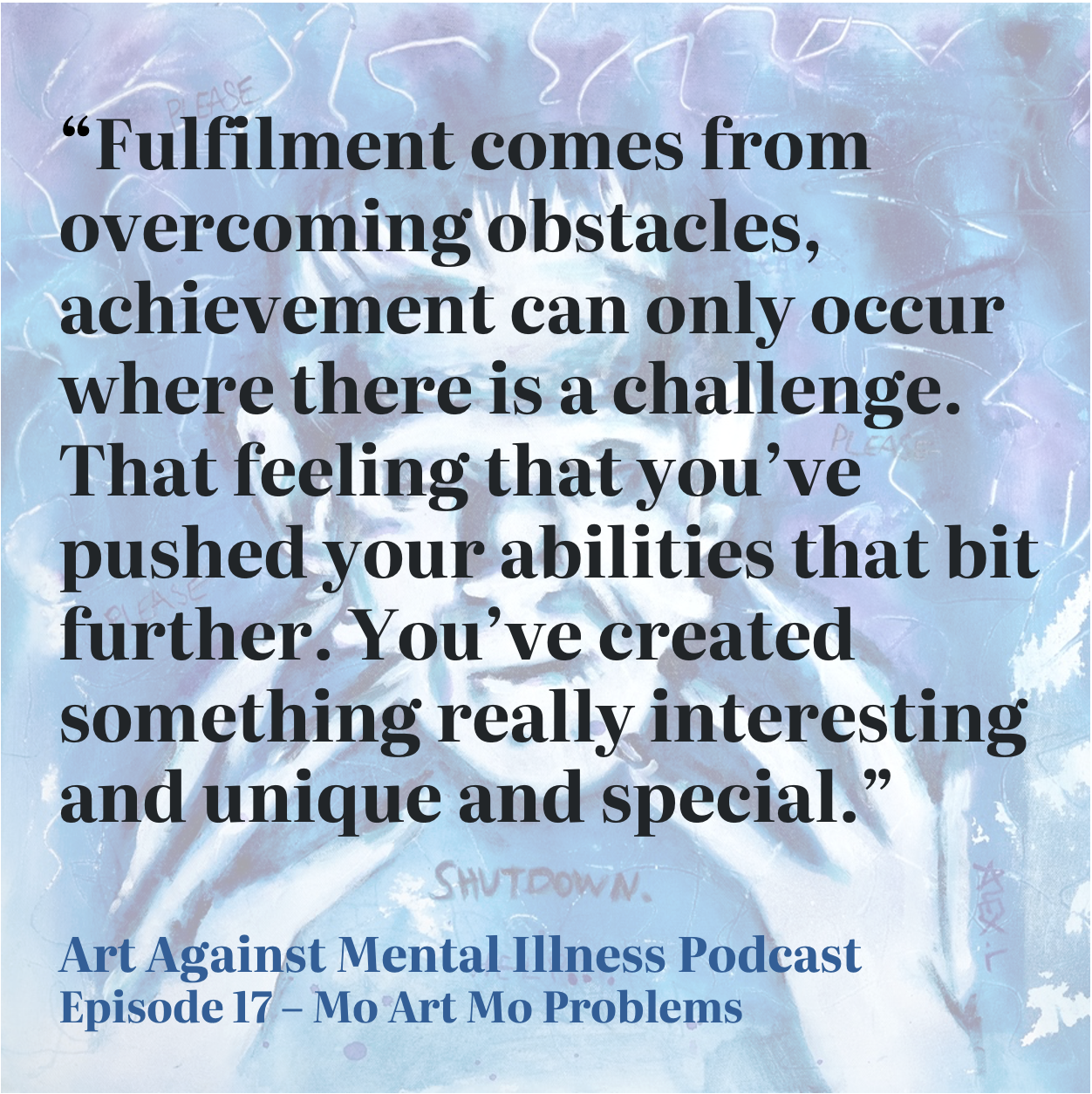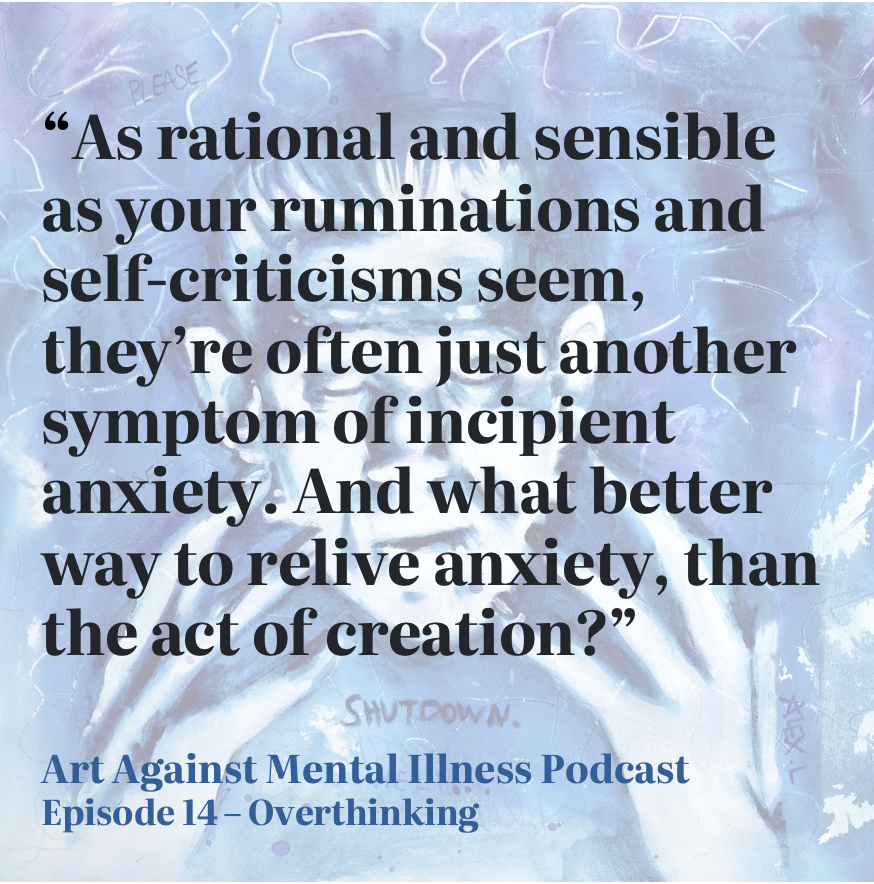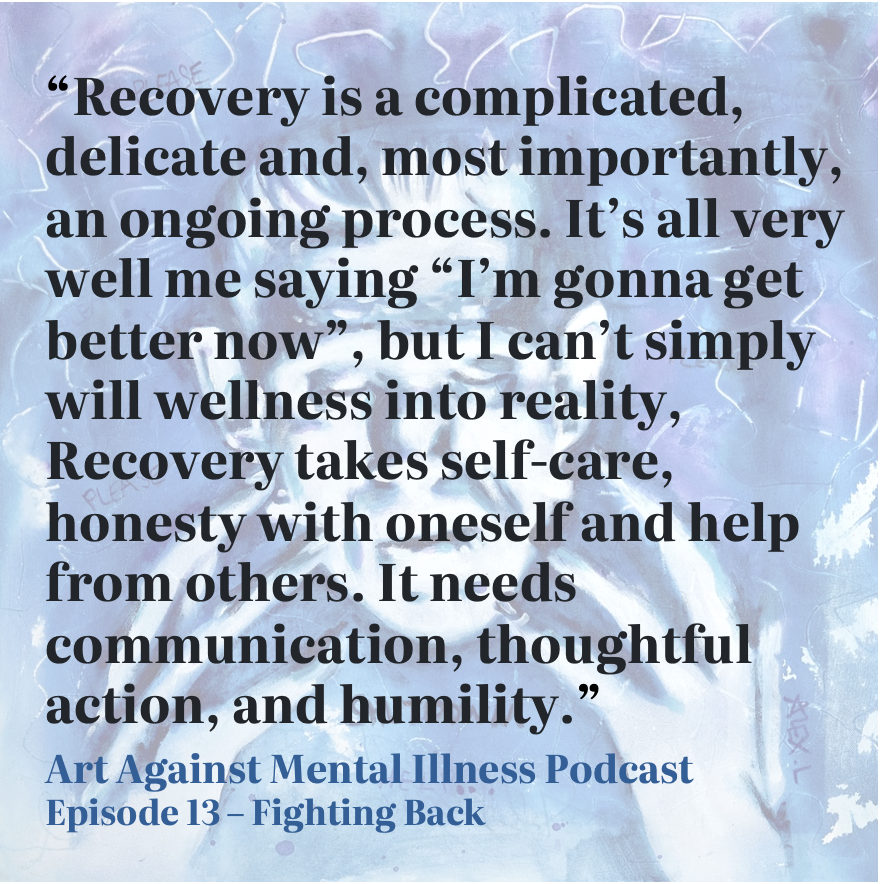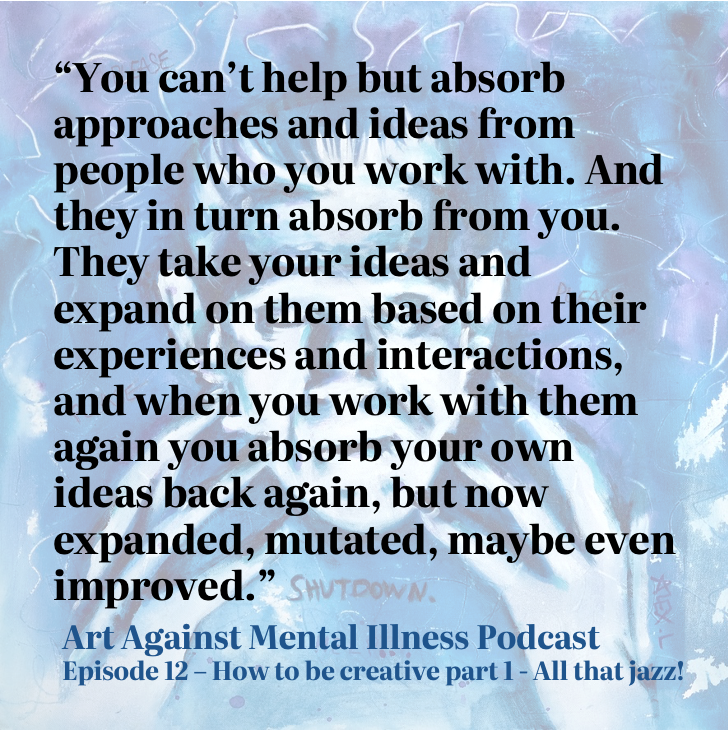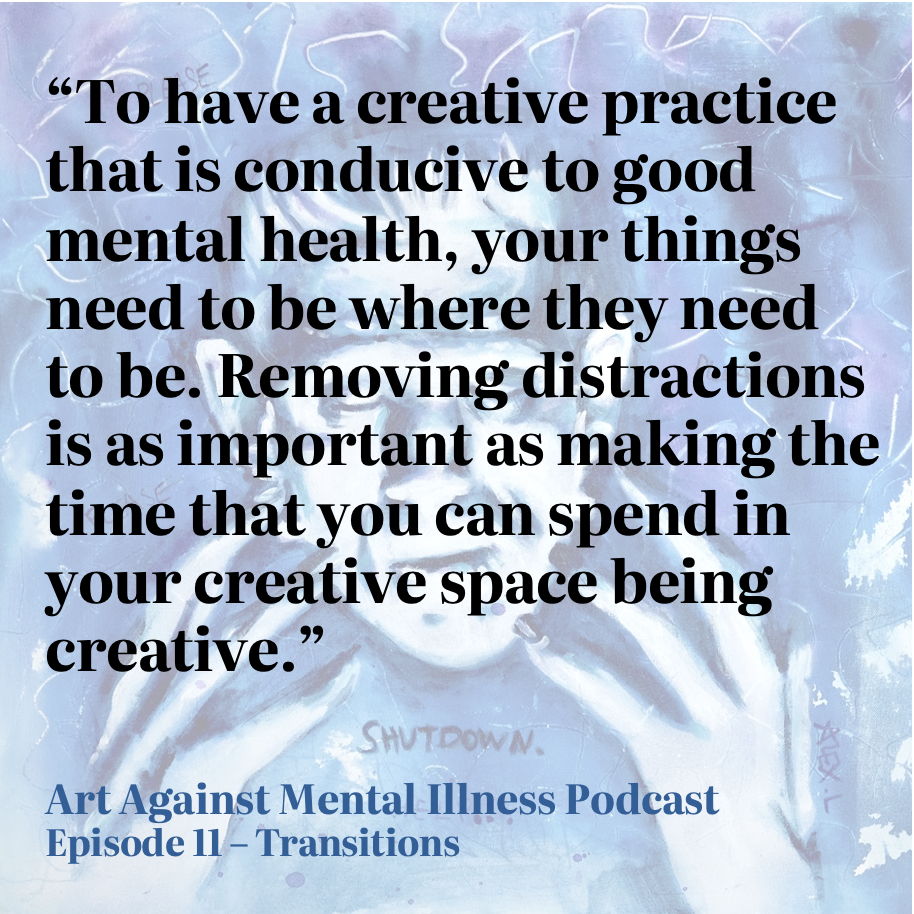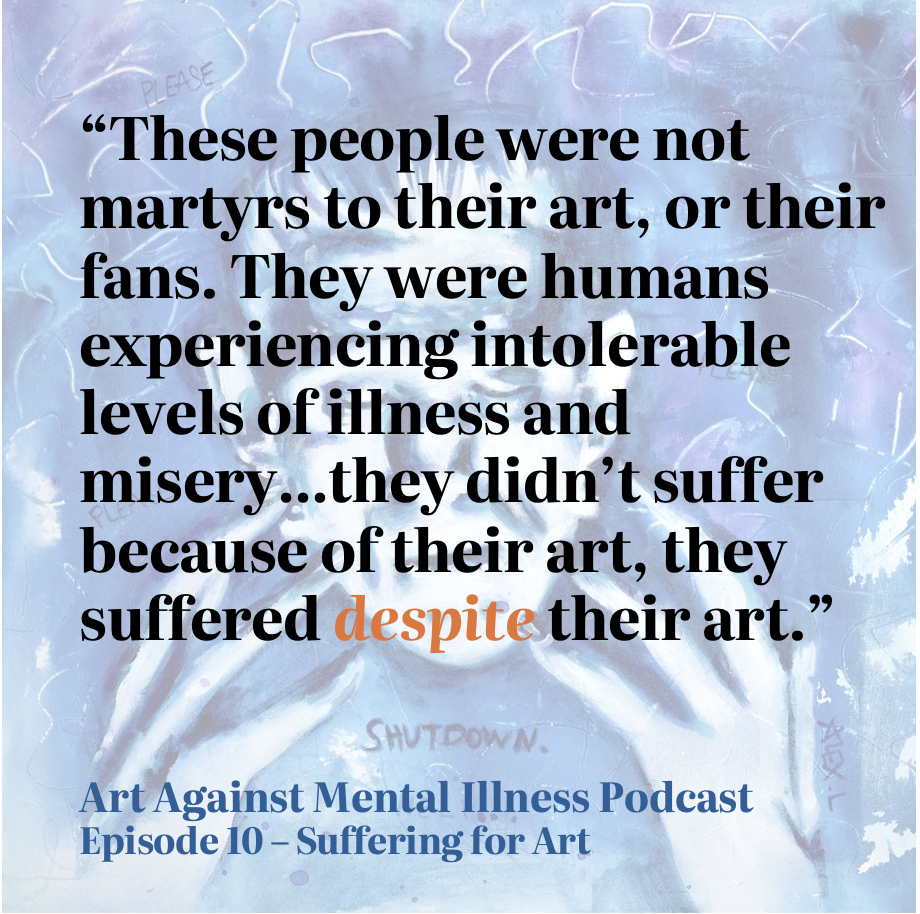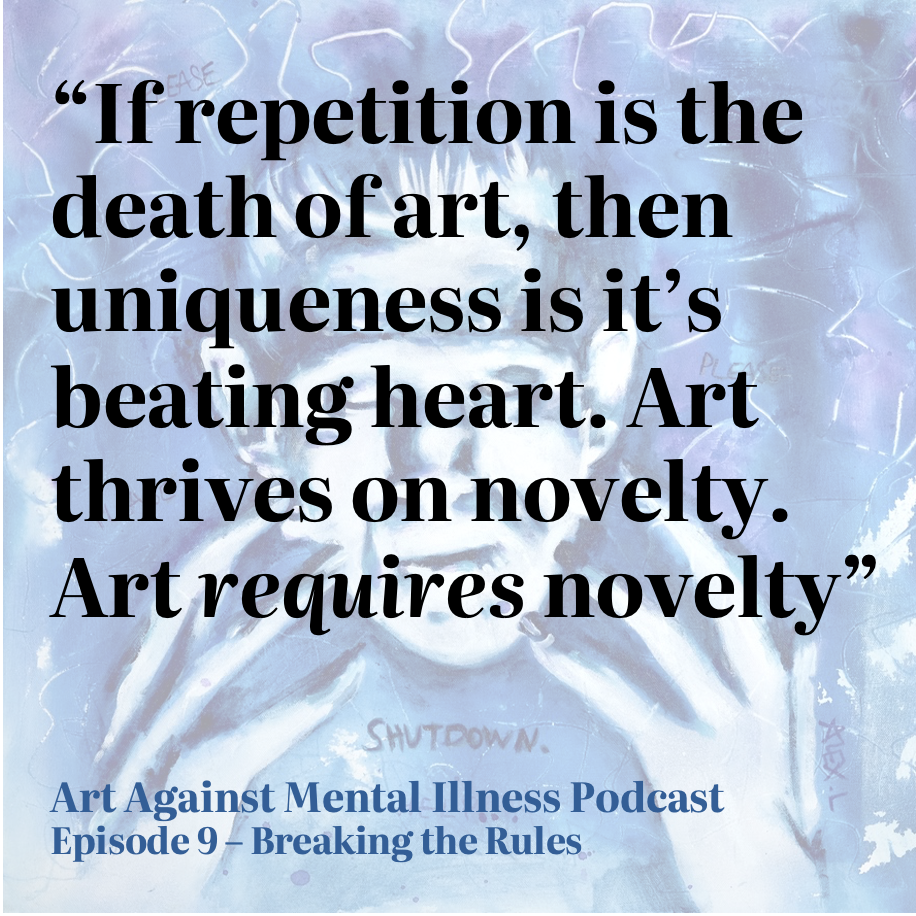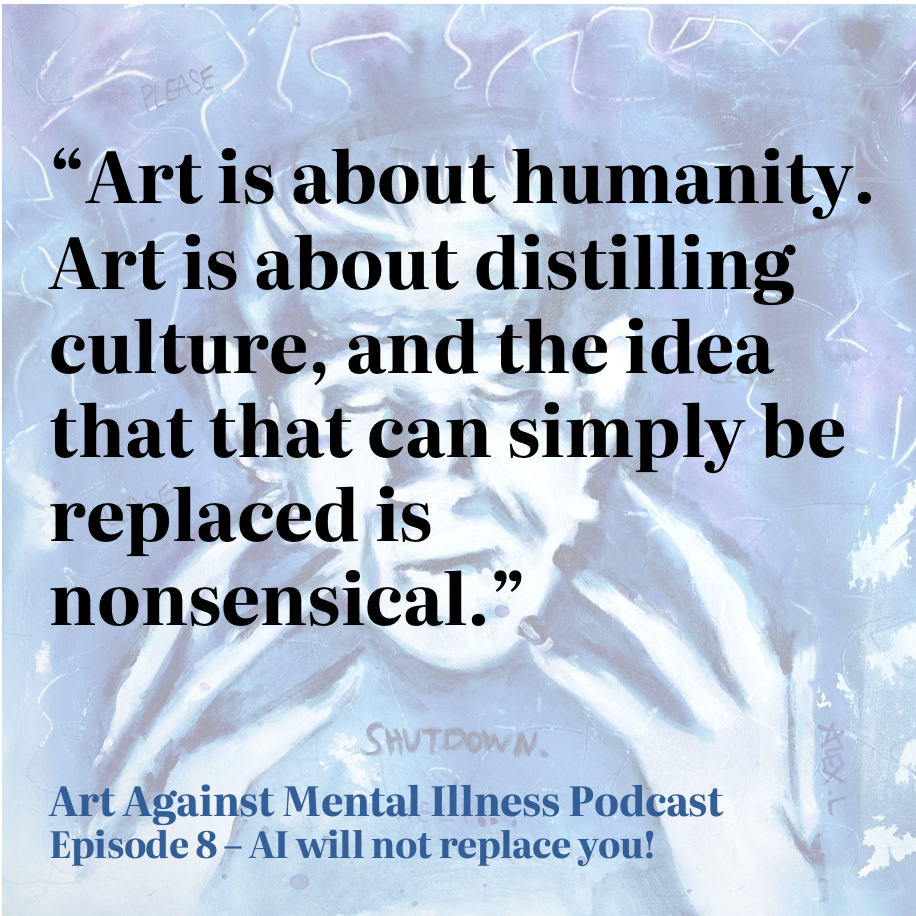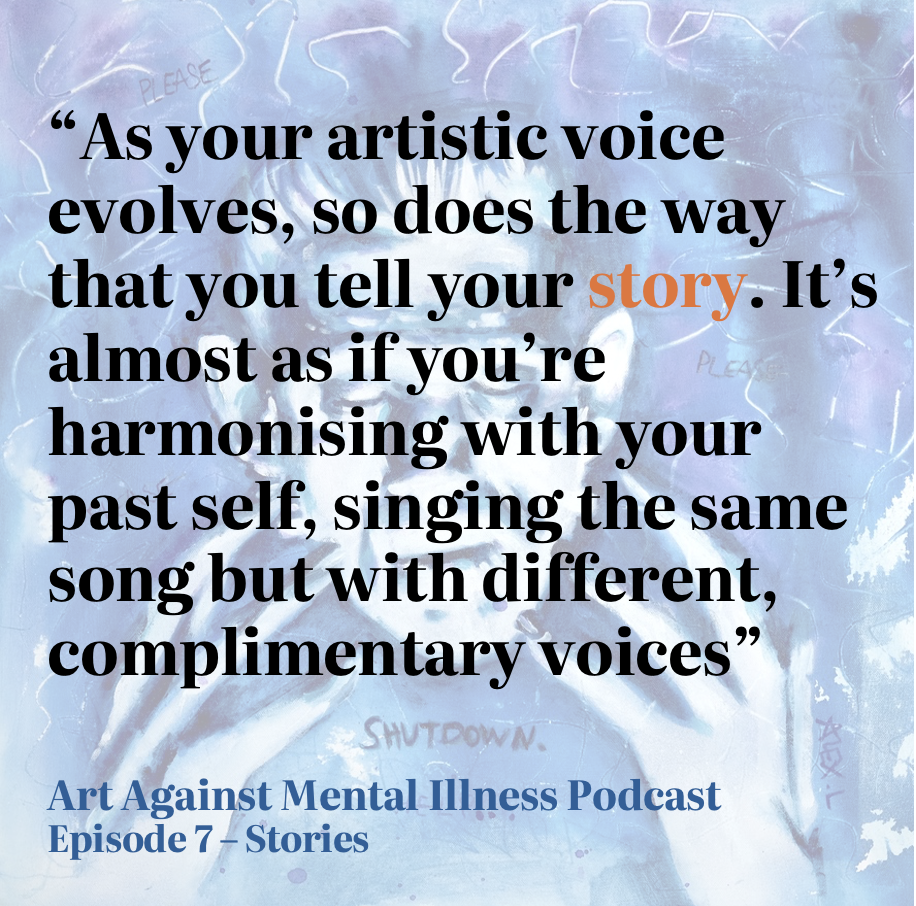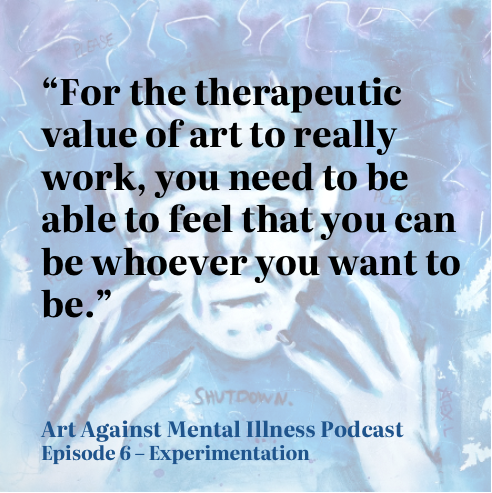Tag: Art Therapy
How to be creative part 2 - Mo Art Mo Problems (17)
Posted on Thursday, Oct 31, 2024 | Mental Health, Art, Creativity, Mental Illness, Art Therapy, CreativityAlex explains how problem solving is central to the practise of creativity via mathematical proofs and magicians in this long awaited second part of the How to be Creative series.
Overthinking (14)
Posted on Tuesday, Oct 15, 2024 | Mental Health, Art, Creativity, Mental Illness, Art Therapy, Creativity, AnxietyFighting Back (13)
Posted on Sunday, Sep 8, 2024 | Mental Health, Art, Creativity, Mental Illness, Art Therapy, CreativityAlex talks candidly about his recent resurgence of mental illness, what happened to cause it, and how he intends to fight back with the help of, you guessed it, art!
How to be creative part 1 - All that jazz! (12)
Posted on Thursday, Aug 8, 2024 | Mental Health, Art, Creativity, Mental Illness, Art Therapy, Creativity, Jazz, MusicAlex kicks off a new series of a yet unknown number of episodes on creativity. He explores the nature of creativity using examples from the world of jazz, introducing the core concepts that will be covered in upcoming episodes.
Therapeutic Outlet - Transitions (11)
Posted on Wednesday, Jul 31, 2024 | Mental Health, Art, Creativity, Mental Illness, Art TherapyAlex talks about his move to a new house and studio, how such transitions affect his mental health and how it’s essential to make space and time for your creative therapy during times of transition.
Suffering for Art (10)
Posted on Sunday, Jul 21, 2024 | Mental Health, Art, Creativity, Mental Illness, Art TherapyAlex challenges the dangerous myth that suffering is essential for artistic creation, emphasizing that while art can reflect personal pain, it should not be a cause of suffering. Drawing on examples from Van Gogh to Kurt Cobain, he passionately argues against expecting artists to endure pain for art’s sake, advocating instead for recognizing art as a means of healing and self-regulation.
Breaking the Rules (9)
Posted on Sunday, Jul 14, 2024 | Mental Health, Art, Creativity, Mental Illness, Art TherapyAlex challenges the notion that there is a ‘right way’ to do things, drawing on examples from mathematics to art. He debates the value of strict adherence to traditional methods in art, arguing for a more individualized approach that embraces personal style and innovation. The discussion covers misconpective rules in artistic practices, such as avoiding black paint, and the constraints of following perceived artistic conventions. Emphasizing neurodiversity and personal expression, the speaker advocates for breaking rules when they stifle creativity, ultimately suggesting that art should be a liberating and enjoyable pursuit that transcends rigid frameworks.
Therapeutic Outlet - AI will not replace you! (8)
Posted on Sunday, Jul 7, 2024 | Mental Health, Art, Creativity, Mental Illness, Art Therapy, AI, GenAI, Generative AI, LLMs, Generative ArtIn this episode of the Art Against Mental Illness podcast, host Alex Loveless introduces a new, less structured episode format called therapeutic outlets. He engages in a more relaxed, wide-ranging discussion, focusing on the impact of AI, especially in the arts and creative industries. Alex shares concerns about AI’s role in content creation and job displacement, reflecting from his experience as a data professional. He emphasizes that true creativity involves choice and context, arguing that AI lacks the genuine creativity found in human-led artistic processes.
Stories (7)
Posted on Monday, Jul 1, 2024 | Mental Health, Art, Creativity, Mental Illness, Art TherapyAlex talks about the role of stories in how humans perceive the world and the role that art plays within this. He explains, using stories, how an artist encodes their story into every artwork, often in a non-linear fashion. Alex also talks about how autistic people feel compelled to tell their stories as a way of empathising with other people.
Experimentation (6)
Posted on Sunday, Jun 23, 2024 | Mental Health, Art, Creativity, Mental Illness, Art TherapyAlex experiments with an unscripted monologue about experimentation. In it he covers the importance of experimentation to the creative process both from the perspective of improving your practise, but also to maximise its therapeutic benefits. Alex relates some of his more recent travails and how they lead him to this moment of experimentation.
